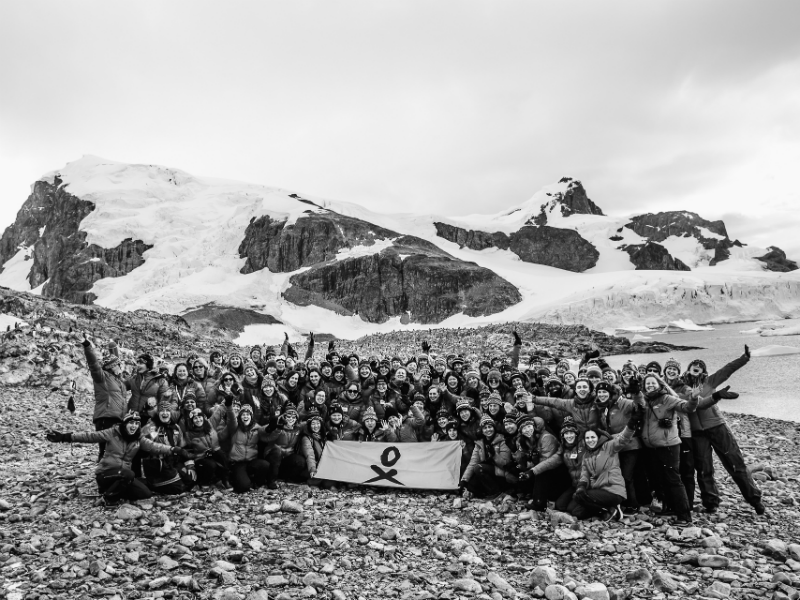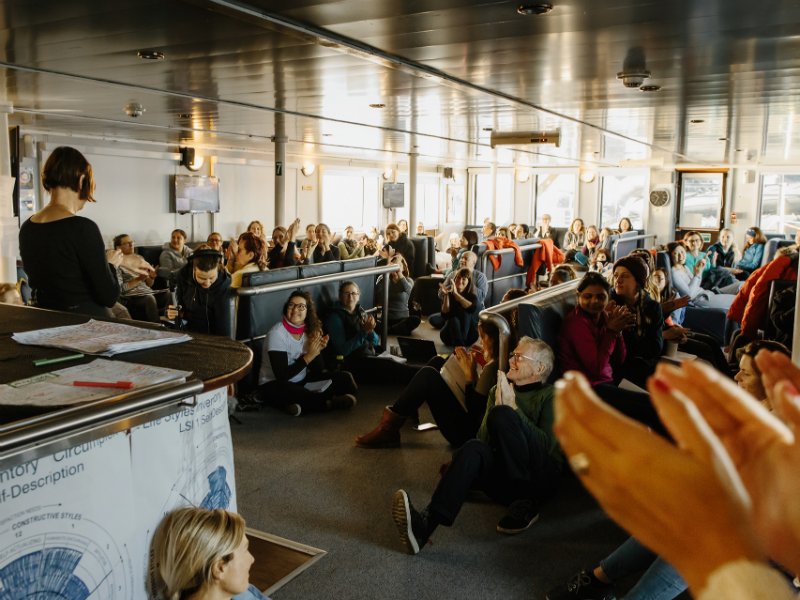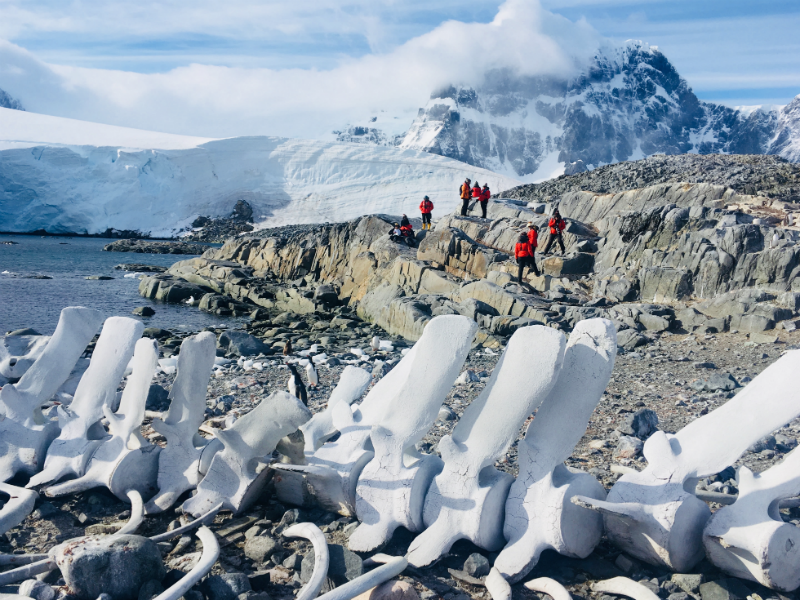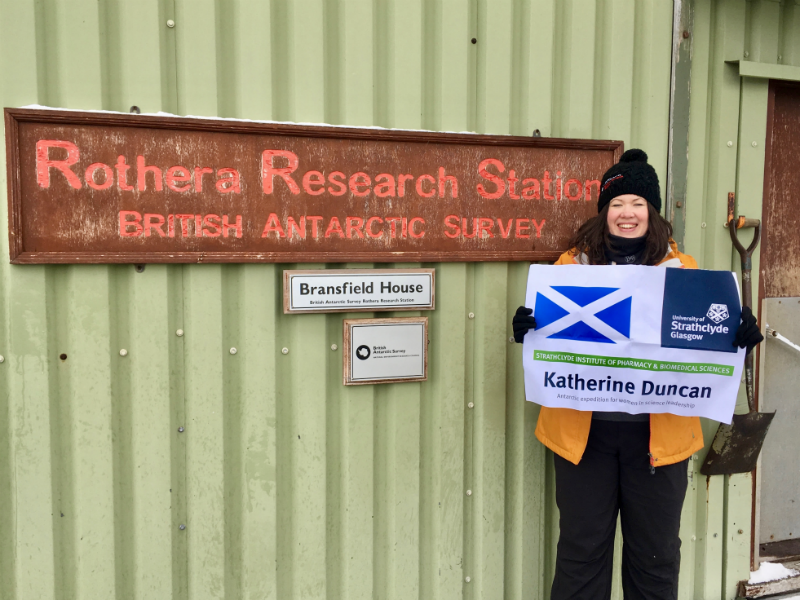Antarctica is the coldest, windiest, highest and driest continent on Earth, yet it is the unexplored nature of its landscape that is the defining characteristic. The Antarctic Treaty which protects areas below 60° South latitude, represents 80% of the World’s population, yet very few people have experienced Antarctica.
On Sunday 18 February 2018, I departed from the Southern tip of Latin America, set sail through the Beagle Channel and crossed the perilous Southern Ocean to Antarctica. The journey across the Drake Passage was not only the start of a 21-day expedition, but the culmination of a year-long leadership program for women in science.

Homeward Bound is a ground-breaking leadership, strategic, and science initiative, set against the backdrop of Antarctica. As a scientist, whose career spans three continents and 18 years so far, I was acutely aware of the imbalance of women in science leadership roles. Although improvements have been made in school education to encourage more girls into science, less women than men pursue science degree programs overall. For example, in the UK, the number of women enrolling in higher education science subjects has increased, however they only comprised 37% of the total for 2016-17. It has been documented that socioeconomic, environmental, experiential and educational factors contribute to applicants choosing to study STEM (science, technology, engineering and maths) subjects. The imbalance is amplified in leadership positions, with men often holding occupations that confer higher status, power and pay. Homeward Bound seeks to address this, firstly by creating a global 1000-strong network of women STEM leaders and secondly by equipping this network with a strong foundation of leadership skills.
In March 2017, I was selected to join 78 other female scientists chosen from around the world through a rigorous peer-review process. The eleven months prior to Antarctica involved frequent teleconference calls with fellow participants while developing the four emerging components of the leadership program.
These included leadership development; scientific collaboration; strategic capability; visibility and science communication. I achieved these leadership goals using diagnostic tools with the support of life coach sessions to create a personal strategic map and foster new scientific collaborations.
The last four weeks of the program were comprised of a week in Argentina and three on board the MV Ushuaia in Antarctica. On this expedition, every day involved synthesising new collaborations, personal development and strategic direction. For example, a Science Symposium at Sea was held along with sciencethemed group discussions, my contributions particularly aligned with the oceans and human health group. The group also had the opportunity to visit five Antarctic scientific research stations, to engage with hundreds of scientists, including those at the British Antarctic Survey base of Rothera.


Impactful discussions were often held while sitting amongst penguins, sailing around icebergs or watching killer whales long after the program had ended for the day.
Homeward Bound provided space, time and a supportive network to enable an accelerated leadership strategy and develop a collective impact, all against the inspiring backdrop of the world’s most remote continent.
My advice to early career researchers? Align your research career to your values, create a support network and be proactive to be the change you want to see. I have regularly focused on my leadership skills including being selected for the Scottish Crucible and training courses in academic leadership from Barefoot Thinking, MyConsultants and at the University of Strathclyde. Homeward Bound will run for a further six years and welcomes applications from women with a background in STEM. I am currently in the process of writing a blog about this life changing expedition, you can follow along with the journey at www.medicinesfromthesea.com/antarctica or through my tweets @kate_duncan.

More from Equality, diversity and inclusion
Comments
If you are a British Pharmacological Society member, please
sign in to post comments.